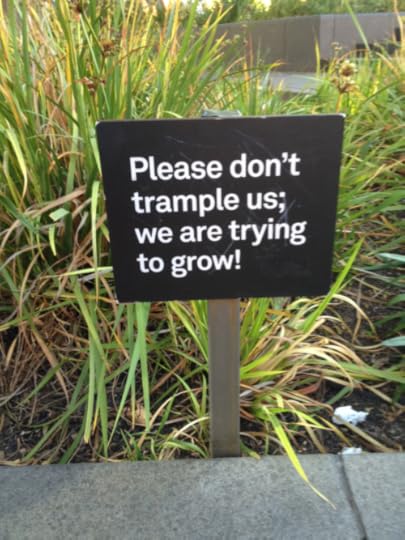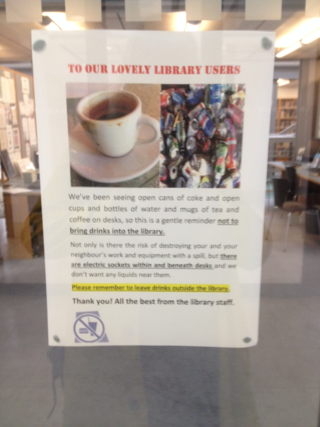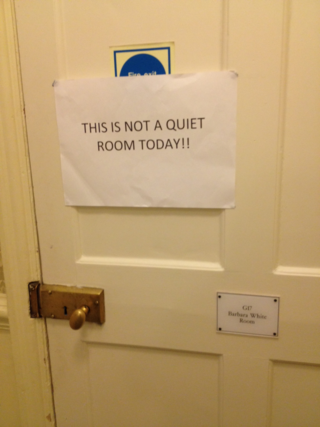Mary Beard's Blog, page 26
March 13, 2015
Cast museums
I must confess that I have rather been put off signing communal letters recently -- not because I am signing up to some cause I don't really agree with, nor because I think communal action of this sort (ie letter signing) is useless. But I have spent days and days replying to those who disagree. In some ways this is good, and I have made some great mates online, with whom i disagree fundamentally about Scottish Independence -- and mates with whom I disagree less fundamentally, I think, about the rights of the trans community (even though I seem bizarrely to have been branded a transphobe).
But if any one is looking for a good campaign, it must be to keep the plaster cast museum in Basel open.
Museums of plaster casts of ancient sculpture used to be a thing of the past (truth is that many of them were smashed in the mid twentieth century). But the whole idea of seeing ancient sculpture through a series of life sized replicas has had a rebirth in the post modern era. The V and A cast courts have just re-launched to some razzmattaz, and there are extraordinary collections in Oxford and Cambridge.
The logic is obvious. It is partly the fact that casts made in the nineteenth century often preserve details of the "original" that are now lost. But there is also the question of the post modern profusion, the extraordinary collocations that a collection of plaster casts can offer (I mean what you can see next to what... and so on).
Anyway, the threat to most of the Victorian cast galleries in this country has now gone. It's not like he 1930s when we were trying to smash them up one by one, partly to demonstrate how we had freed ourselves from the dead hand of frozen classicism. But that doesn't mean that cast collections worldwide are safe, and one of the very best of them is now under threat. The collection in Basel is one of the very best, and we are told that it is going to be under wraps now for seven years at least, because of funding constraints (and I am afraid that when plaster casts are under wraps for that long, they dont come out unscathed).
There is a petition about Basel (with more details) you can sign here.
March 8, 2015
My new car
Whatever I said before about the new sexist ads for the new Vauxhaull Corsa, I must now confess that we have bought one. There it is sitting proudly by our dustbins, new car small and all.
As I think I said, I have no particular fondness for the Corsa as such, and as I dont read reviews of cars, I have no clue how those who know about such things rate it. But it has always been good enough for us. And more important it comes from Murkett's garage which is five minutes walk from our house (so no hanging around waiting for someone to give you the 'courtesy car' to drive back home in), and what is more is staffed by people who are uniformly nice and helpful, even when one is showing one's ignorance about some piece of motor anatomy.
In fact I found myself wondering as we went to collect it, how striking it was that so many people who worked in really "traditional" jobs were so nice. It goes also for Mr Till who delivers our coal, Alison our milklady, Wallers the butcher, Steve and Jeremy who bring the fruit and veg, and John the builder. I know there are some honourable exceptions, but it's not a style you find in the average mobile phone salesman, or web marketer. But more on that another time.
I have to say that even at my bottom of the range level, I do find all the gadgets that you get on a new car and would not have dreamt of before wonderfully intriguing, even if you dont think you'll ever use them.
This car, for example, has heated seats to warm your bottom on a cold day. I'm really not sure that I need that too much -- keeping warm on the inside of a car hasn't ever been much trouble for me. But I am rather keen on the heated front windscreen, which seems to obviate the need for all that scraping or spraying.
Our only little extravagance though is something we haven't yet tried. He'll kill me for saying this, but the husband is not a great fan of parallel parking, so we paid the extra to have the "advanced parking system", which is supposed to find you a space you will fit into and then get the car to park itself, while you (I think) just tap the accelerator and brake from time to time.
Presumably the next car we get really will just drive itself.
March 6, 2015
International Women's Day for historians
Sunday March 8th, just coming up, is International Women's Day, and I was vaguely thinking of a post on some relevant topic, when a new report by the Royal Historical Society plopped into my inbox -- on the subject of "Gender Equality and Historians in Higher Education".
OK, before you say it, in the long list of things on the agenda of feminist campaigners, the plight of female academics isn't likely to be very near the top. But if we didn't take any problem seriously simply because there were other bigger ones out there to be solved, then the pace of human reform would be even slower than it is now. So it is worth looking at what is happening (or not happening) among the "History Boys", as this report lays out very clearly.
First, the basic data. Among school and university students there is a roughly equal gender balance. But almost 80% of history professors are men, and over 60% of university academics overall. Why this is particularly striking for me is simply because of the lack of real change, since I first starting noticing this fairly standard disparity about 35 years ago. Back then, when we raised it, we were always told to have a bit of patience, that the larger number of women entering higher education as students from my generation on would eventually feed through into the higher echelons. Just wait, ladies.
Well, we waited and they haven't fed through, or not much. This graph shows the problem clearly: there's some increase in female professors visible on the age profile, but still a big lag.
So why is it? And what should we do? On those questions this RHS report is well worth a read.
It doesn't exactly have the answers (if they were that easy to get, we'd have cracked this one years ago). And I don't agree with all their suggestions. I am a bit allergic to things like "gender equality charter marks" even though I know they have done good things (a long term antipathy to "badge culture", I'm afraid... or to all the "champion culture" that universities now seem to like). And the idea of not sending a work email outside "normal working hours" seems sort of wrong headed. Flexibility is one of the pleasures of academic life (though, I grant you, also a stick to beat oneself with). And anyway the point surely is that one should not be forced to ANSWER the emails on a Sunday, or after midnight, or whenever -- not that some poor bugger shouldn't be allowed to send them!
But there are also some good thoughts and good suggestions for making any humanities department a fairer place for women all round.I was particularly pleased with the suggestion that maybe the requirement to have a certain proportion of women on every committee wasn't actually helping the women already in post. Basically, they have to turn up to "be the women" at endless meetings, while their male colleagues get proportionately more time in the library, writing more books, which get them quicker promotion... I've certainly begun to say no occasionally when the ONLY reason I am being asked to be on some board or whatever is because of my chromosomes.
There are also good suggestions for how to make seminars a more female friendly place than they often are (partly drawn from an earlier philosophy document). I think, for example, that the idea of a 3-5 minute break after the paper has been given and before the questions start is a good way of letting people who don't shoot from the hip get the ideas formulated, and actually gets a better quality of discussion across the board.
And I particularly liked:
"Ensure questioners ask only one question at a time, so that more people have a chance to speak"
This reminded me of an extraordinary occasion when a female friend was chairing a discussion at a small conference. One very pushy guy says as his first question: "I have got three questions that I want to put". This had been his tactic at every previous session of the conference, under different chairs, and he had basically hogged the floor. So my friend says gently, "may be we could just have two".
The result? The would-be questioner is furious and refuses to ask anything if not three (perhaps a relief). But some of the men in the audience tell my friend afterwards that SHE was rude to this guy.
Willy waving all-round, one might say.
And all power to the RHS for having some sensible reflections on the issue.
March 1, 2015
The culture of entrapment
I am rather late to the party on this one, but I have been thinking about the "Malcolm Rifkind and Jack Straw scandal" quite a lot since I watched the Channel 4 Dispatches programme last week, and there was a good article on it by John Naughton in the Observer this week.
I guess I should confess that I was pretty gripped by the programme, and no doubt like most of the watchers took a terrible (and not wholly worthy) pleasure in seeing the fat cats caught out. It was gripping viewing, watching how these guys were going to step in the shit next.
But there was also something a bit dirty and polluting about it.
I know that you might say that this was a great example of the third estate holding those in power to account. If these guys can't behave properly or be policed by Westminster itself, then may be we should let some clever investigative journalists do the job instead.
But I still can't help feeling that I want the electorate to oust elected politicians not a joint sting operation by a tv company and a newspaper.
And then there is the nature of the sting operation itself.
The point surely is that this was not an operation to hire an MP or ex-MP to be a consultant for a Chinese company. It was presumably an exercise in entrapment with the aim of getting these guys to say roughly what they did. It was a bit like a phone call scam -- when their aim in NOT to mend your computer which has a puzzling but as yet undiagnosed fault, but to get you to part with your bank card details.
So the point is for me, what happened in the bits of the encounters that we did not see? I haven't been able to find any information on that. For example, both guys seemed very anxious to boast about the influence they had (whether in the EU or among ambassadors or whatever). Maybe they are just natural braggers. But I couldn't help wondering if they had been set up for that in the sections of the encounter not broadcast. Were they, for example, set up to be competitive? Was the influence of other people, who had supposedly already been talked to, trailed for them to outbid ("we have spoken to someone who could help us with the heads of all the trade missions..".."oh well I could get you in with every ambassador.."). It doesn't excuse it, far from it, but it does rather differently contextualise it.
I guess that I have always taught students that fragmentary sources and excerptions make dangerously difficult evidence. It would be nice to see the out-takes.
February 27, 2015
The Indian Queen
I know that I am supposed to be having no fun and just writing all the time, but I confess I did take yesterday evening off to go to the opera -- that is Purcell's The Indian Queen at the Coliseum. (I know that ENO is having a rough time at the moment, but they do put on really tremendous, daring, risky stuff -- like Terry Gilliam's Benvenuto Cellini, and now this). In fact, it turned out not to be so far from my current concerns as I had thought.
To be honest, until about a week ago I didnt realise that Purcell had written any such opera. It is a probably forgiveable piece of ignorance, as he never actually finished it. Well under an hour's worth is all we have.
It was apparently completed later by Purcell's son, not very effectively. So the director at ENO, Peter Sellars, has done the job again, by throwing out the original story (on most accounts a rather tedious tale by Dryden about battles in central and southern America before the arrival of the Spanish; I confess again that I haven't read it so maybe that is an injustice). He has replaced it with a plot based on Rosario Aguilar's The Lost Chronicles of Terra Firma, a novel which captures different kinds of women's experience under the Spanish conquest of Mexico. And the whole thing runs for about three and a half hours, by incorporating music from elsewhere in the Purcell repertoire (and some stunning dance routines).
Purcell himself would not recognise it. It is really a brilliant operatic equivalent of a clever ancient cento ( that genre which creates entirely new works by selecting lines from (say) Virgil and putting them together in new ways and in a new order...). And it is a tremendous assault on the senses, the kind of opera where you have to sit back and let it work you over.
But why not so far from my current concerns? Well, because it is an extraordinary meditation on the brutality and complexity of empire (which is what I am soon to be writing about). And it was being done in the Coliseum, whose extraordinary decor is itself a wonderful pastiche of the Roman Colosseum, with all the connotations of brutality, complexity and empire that that brings.
I couldn't help wondering, as I let the opera work me over, how many other people in the audience were also reflecting on the way that what was going on on stage was "talking" so eloquently to the magnificently over-the-top auditorium.
February 22, 2015
The Antikythera Wreck
One of my favourite "assemblages" (as archaeologists say) of ancient material from the Greco-Roman world is the stuff from the "Antikythera Wreck", a cargo boat that went down between Crete and the southern tip of the Peloponnese probably in the 60s BC (dated by coins), on its way with a load of prestige (and some not so prestige) goods for the Roman market, trade not loot almost certainly.
The wreck was first discovered in the early 20th century by sponge divers and has been investigated several times since with more sophisticated equipment and new explorations are supposed to be underway. It is now most famous for a scientific "device" found on board (right), often wrongly dubbed the  "world's first computer". In fact it is an extraordinarily clever mechanism for predicting and calculating planetary and other astronomical movements, on which there was rather a good tv programme not so long ago (despite the title). Presumably it was on its way to be the instrument-cum-plaything of some learned Roman, and not a super super sophisticated navigation device, as has sometimes been thought.
"world's first computer". In fact it is an extraordinarily clever mechanism for predicting and calculating planetary and other astronomical movements, on which there was rather a good tv programme not so long ago (despite the title). Presumably it was on its way to be the instrument-cum-plaything of some learned Roman, and not a super super sophisticated navigation device, as has sometimes been thought.
But luddite that I am, I have always been more interested in the other material on board -- sculpture, bronze and marble, glass, furniture etc etc
Some of it is well known, the bronze "Antikythera boy" for example. But my favourites are the fragments (like the bronze feet above) and the extraordinary bits of decay, where the resting place of a statue on the sea bed has kept parts of it corrosion free, while other parts have been eerily eaten away, like this half corroded face.
And a pretty close second comes the glass. It is always easy to forget that the Romans were dead keen  on precious glass ware, simply because so little of it survives. But there is a good selection on the wreck, including some extraordinary glass mosaic bowls (right).
on precious glass ware, simply because so little of it survives. But there is a good selection on the wreck, including some extraordinary glass mosaic bowls (right).
But for the historians of Greek sculpture, there are some other issues to. Some of these pieces corroded as they are bear a striking resemblance stylistically to the sculpture from the so called cave of Tiberius at Sperlonga, where a vast grotto was  filled with Odyssey themed pieces, apparently done by the same team as Pliny names as the artists of the Laocoon. The dating of these has always been controversial. But the stuff from the wreck (left)might encourage us to think earlier rather than later.
filled with Odyssey themed pieces, apparently done by the same team as Pliny names as the artists of the Laocoon. The dating of these has always been controversial. But the stuff from the wreck (left)might encourage us to think earlier rather than later.
Why am I looking at these right now? You've guessed it. I'm interested in Cicero's collecting habits. And this is the right date.
Oh by the way, if you want to see it, it's in the National Museum in Athens.
February 20, 2015
Cicero Letters
It has been a bit of a disturbed week (on which more later, when the dust has died down a bit). But really I have been trying to get on with the book. Caesar has, you will be pleased to hear, been killed off and we are about to move on the next round of Civil Wars, followed by the principate (and the home straight).
To be honest, this isn't really a book about battles. But I did think that moving straight from the run up to the death of Caesar, to the Philippi campaign, the triumviral proscriptions, and then to the Actium campaign was really a bit much for the reader -- in the sense that however much one varies the style and the focus etc, there is a kind of "more of the same" feel to it all. So I decided to take a bit of an intermezzo at this point and do a chapter that I was going to call "A Day in the Life", but which is now called "The Home Front".
The point is to look at what else is going on in the lives of these big characters, that we dont get told in most of the main ancient narratives. So what I have decided to do is to work out from Cicero's Letters of the period between 49 and 44 BC (crossing of the Rubicon to assassination of Julius Caesar) -- the period when Cicero's family collapses, when he divorces Terentia (his wife of thirty years) and marries a ?15 year old heiress, when his daughter Tullia is also divorced and then dies in childbirth. The idea is not simply to tell a private story, but to use the private story to broach issues about women, marriage, life expectancy, children etc etc (the things that most Romans worried a lot more about than exactly what Julius Caesar was up to).
As it happens I have worked on Cicero's Letters most of my adult life on and off.
For those of you not familiar with them, they are the single most important collection of private letters to survive from the ancient world, about 900 in all, including very many written to Cicero's "best friend",by the name of Atticus, but also others to his wife and family, various of the big wheelers and dealers of the Late Republic, and even to his slave (later ex-slave) Tiro. And they cover every topic under the sun, from upset stomachs to the elections for the next consuls. (You can find plenty of selections, and the complete text in Latin and translation on plenty of places on the web.)
The truth is that mostly I have taken a slightly sceptical line on the transparency of these letters as "evidence". When I wrote my PhD thesis I was very keen to argue that what was in the letters was not necessarily true just because it was in private letters -- that these were manipulative and instrumental documents too, as much as his speeches or treatises were. Much later, I wrote an article to argue that whoever it was who edited and "published" these letters after Cicero's death (identity still uncertain) was not simply a neutral collector, but arranged and selected the letters for inclusion to make a point (or points) -- that we hadn't got, in other words, free access to Cicero's filing cabinet but to a carefully crafted presentation of the man via his private letters.
I still believe both those warnings are important, but to be honest it has been good fun to go back to some of the extraordinary descriptions and "moments" in the correspondence, which -- transparent or not -- capture quite unexpected aspects of Roman life. I dont intend to give my chapter away. But I had forgotten how funny Cicero's description of having Julius Caesar to dinner was (the dictator apparently turned up with a guard of 2000 soldiers, who needed putting somewhere). And the letters after the death of Tullia are a document of ancient grief that it hard to better (or worsen).
So I hope that I have done them justice without being too anecdotal.
February 15, 2015
No-platforming
This is a bit of a long one, apologies... but useful think to set the record straight.
About a week ago, I was sent the text of a letter about the problem of "no platforming" in universities, specifically in relation to divergent, unpopular, and may well be wrong, feminist views, especially in relation to sex workers and the trans community. In fact I had one from the organiser of the letter, and another from an academic colleague.
I have a very clear, long held view on this (which may not of course be right): that 'no platforming' unpopular views is counter productive, discourages debate and the due dissection of error, and pushes views one would like to contest openly underground, where they may well flourish better than if exposed to the clear light of argument (which is one of the things that universities are for).
This is not a simple argument about free speech, which is much too fuzzy a concept to be much use honestly. No one really believes that we have a right to totally free speech, except some idiots on the web who use the phrase to justify anything from death threats down. And everyone reckons there are some difficult cases (and the subject of this letter may have been one of those). But what I would stand by, forever, would be the centrality of free debate in universities and elsewhere. As one e-mailer put it, in reference to questions of Germaine Greer's views on trans politics, "of course she can find another platform if she is disinvited from Cambridge, but we need her to DEBATE here". We should be in the business of subjecting all views, both those with which we agree and those with which we disagree, to public scrutiny. Free speech only means anything it is refers to views with which you disagree as well as agree -- else it's no more than a cabal.
Ok so I get sent the letter (text here). Why sign, why not? Well one thing is certain: at least one of the examples cited in such a letter will always be challenged or turn out to be more complicated. So you have to be clear that the big point transcends any one case. In this instance, it looks like the Smurthwaite example may not have been as it has been widely reported. But Julie Bindel (with whose views on this I disagree) certaintly has been no-platformed by NUS for some time. Greer was threatened with a disinvitation (I disagree with most of what she says too, but defend her right -- and our right -- to debate it). The Oxford abortion debate looks like another, which could well have been mentioned actually.
My worry about no platforming, as the letter clearly stated, is this:
"You do not have to agree with the views that are being silenced to find these tactics illiberal and undemocratic. Universities have a particular responsibility to resist this kind of bullying. We call on universities and other organisations to stand up to attempts at intimidation and affirm their support for the basic principles of democratic political exchange."
I was NOT signing up to an attack on the trans community. Nor was there any remote suggestion that I was.
OK. Then your next worry is your fellow signatories, which you cannot control. Rightly, I think. You have to sign up to the words and the argument not to a club of the like-minded. And you can hardly ask the organiser of a public letter to send you the full list of names before publication in case you didn't want to be seen next to Mr X in print (you don't do that with a petition, after all). As it happens there are about 130 signatories. I dont know all of them, but they include sex workers and trans people, and include many I am proud to be next to: Nimko Ali, Peter Tatchell, Lisa Appignanesi, Melissa Benn, Caroline Criado-Perez, Prof Catherine Hall, Gia Milinovich, Prof Sophie Scott, Prof Francesca Stavrakopoulou, and loads more. Hardly the forces of gender darkness, unless you are a real reactionary.
Anyway since the letter was posted on the Guardian website first thing on Saturday, for two days I have been bombard by tweets (and a few emails). Some tweeters have been very polite in their disagreement; for which, thank you. Others not quite so (i should be clear, though, there have been no threats of violence). I mean bombard. I got 60 tweets in the space of about an hour from one person alone.
The complaints fall into several clear categories. 1) I am an appalling transphobe and whorephobe.. else why would I have signed with all those others...er Catherine Hall a whorephobe? 2) I am a bit passed it, a poor old lady who hasn't quite got the issues straight, bless her 3) I have been duped by the transphobes, because I am a nice person really. This goes along with some more idiosyncratic complaints, like about putting quotes round transphobe (scare quotes indicated we didn't believe in the phenomenon, when it was actually a quote after "deemed"), or comparing my attitude to this to that on the Elgin marbles, or suggesting that I thought Oxbridge profs had a right to speak where others didn't (er, precisely what I have spent my life resisting). One person said that they would be lighting their meeting tomorrow night with a burning of Beard and Tatchell's books, and provided a pic of a previous burning of words. (Someone later piled in to say words to the effect of how paranoid we were to take it seriously.. that's where Kafka comes to mind.)
OK you say, why bother with this (about 200 tweets have come in while I have been writing this post -- happily mostly supportive)? Simple really: I do believe that if you sign a public letter, you should be there to respond to the interlocutors (it's debate after all)... but 60 in an hour from one person?
And I also think that these things aren't straightforward, and there are issues to discuss on which we might reasonably disagree. and that we should take every opportunity to engage with each other about those. The events of the last couple of months have made thinking harder about difficulties "free speech" all the more important. Anyone who is certain they have got these issues "right" are probably very dangerous (and I include myself in that, Socratically).
But I do feel there is something wrong here. I feel confident that I am not a transphobe or whorephobe as accused and could provide references to that effect (though I realise that prejudices are not best perceived by those who hold them)! More fundamentally, I think there is something very weird going on if me and Peter Tatchell (never mind the other 130 people) are held up as the enemy of the SW and trans community when (whatever the micro arguments are) we are on the same damned side. And, for that matter, where are our priorities here when sex workers and trans people are actually getting killed... which really has nothing to do with this anodyne letter on university no-platforming?
Last night I went to bed wanting to weep.. OK a rather minor discomfort given what other people suffer for their gender, but pointless and counterproductive. It wasn't the force of any remark, it was the relentless pummelling of attack on the basis of extraordinary loaded, sometimes quite wrong, readings of the letter. Cumulative harrassment is what it felt like, though I am sure it wasn't meant that way.
To add insult to injury, the Cambridge News emailed nicely today to say they were running a story on this, did I want to comment? No thank you, I said, I was working. As soon as the online story appears, there's a tweet appearing to say how I have used my privilege (or words to that effect) to run to the local paper for support, and the usual under the line comments in the News about attention seeking.
"Why is it Mary Beard thinks she always needs to speak out about certain matters ? Is it because, like one or two others, she's really an Attention Seeker ??"
You can see why a lot of women (and there is a gender issue here) might choose not to put their heads above the parapet, cant you.
(I have removed the earlier pic of a goldsmiths event that had been sent to me, at the request of the copyright holder T Walpole. My apologies that I did not realise it was her copyright, and it was not clear that it was not taken at a no platforming action)
February 13, 2015
Seven favourite(and not so favourite) notices
When we are teaching our students about literacy in the ancient world, we spend quite a lot of time explaining that public writing in the ancient world is not necessarily meant to be read, and so a town full of public notices isn't necessarily a town with a high rate of literacy. This usually leads onto to some discussion of the different functions of the notices we see around us, and their different levels of efficacy. Frankly, the little notice above (I cant remember where I found it) is much more likely to keep me off the plants than some humourless directive just to keep off.
And although it is a little more formal, this notice about (not) bringing drinks into my own college library manages to strike a pretty good note. I mean to say, I wouldn't take a can of coke into the library after I'd seen that.
Others just bring out the counter-suggestible in me. To be honest, when someone tries to tell me how to wash my hands (right down to number of ml of liquid soap), and insists that I turn the tap off with a paper towel, puts me off washing my hands at all. And I dont think that I am the only one. (It wasnt in a hospital, by the way!)
In other cases though, the point of the notice seems to be something quite different
Is there anyone on earth with a milk intolerance who does not know that cheese contain the vile substance or needs the logo to tell them what milk looks like (and this, I confess, in an institution of higher education). This smacks to me of a "dont try to sue us if you get ill" kind of notice. Much like the following, though I can't for the life of me remember what dish this was next too (the warnings rather put one off . . . ).
Just occasionally the joke seems to take over, probably at the cost of the message. This little reminder about passwords being like socks (from the European Commission in Brussels I think) made me laugh, but I suspect would have no effect on the regularity I would change my password!
Though this one (from my college) takes the biscuit for incomprehensibility to the outsiders, while including vital info for the insider.
February 8, 2015
Do nuns teach?
I have been a bit baffled by the furore generated by the clash between Tristram Hunt and Cristina Odone on QuestionTime. Put it this way:
a) there is no doubt that some entirely "untrained" teachers are inspiring (I had some of them)
b) there is no doubt that overall we would prefer the people who teach our children to be trained. Among other things, training does weed out some of the hopeless, it provides a clear form of guided instruction in a difficult skill/craft, and it would be a fool who said that the kind of questions that training courses raise were not useful (what is the current research about HOW people learn languages.. etc).
The issue is: how far it is worth excluding some of the "naturally" good untrained teachers, for the benefit of ensuring a decent standard of all? On this I think I am probably with Hunt, but it is an arguable case.
More puzzling though was the whole issue of nuns and teaching, on which many people who have never met a nun seem suddenly to become experts.
For a start, I rather assume that teaching orders of nuns DO provide training. It may not be the same as a degree in education vel sim, but it is certainly "training", and maybe rather good. (I think we all recognise that the views differ on the quality of the pedagogy of nuns, but "training" I suspect is not at issue.)
But more to the point, would anyone like to fill me in on how many nuns are teaching in the UK? According to a quick google, I think that there are not many more than 1000 nuns in the UK (correct me please, if I am wrong). And the number actually teaching here (probably not the case abroad) seems to be tiny. Most "convent schools" are now taught by lay teachers, with perhaps a nun on the board of governors. Even Cristina Odone's old school (if I am correct in thinking it was Marymount NYC) seems to have largely lay teachers now.
So what exactly are we arguing about?
Mary Beard's Blog
- Mary Beard's profile
- 4110 followers






















